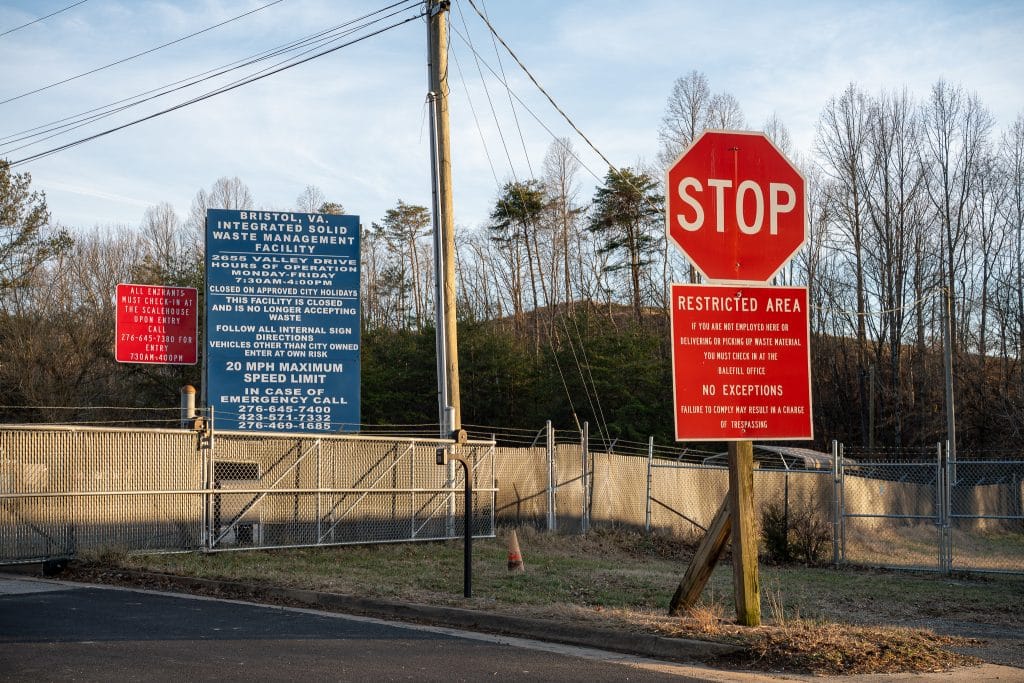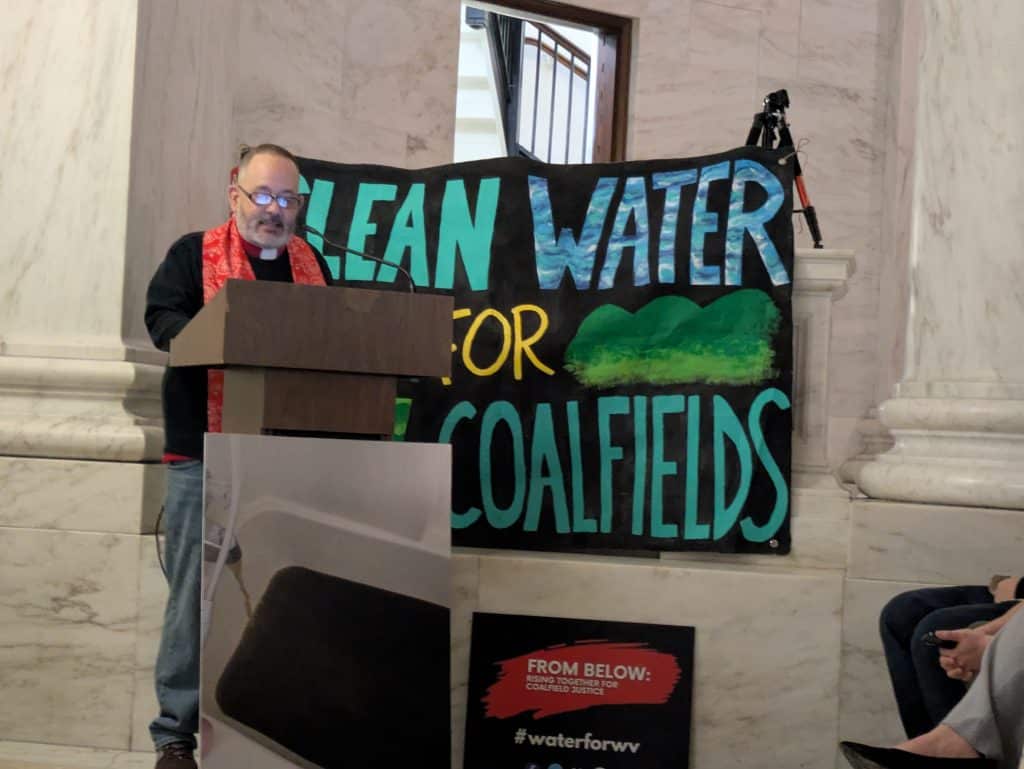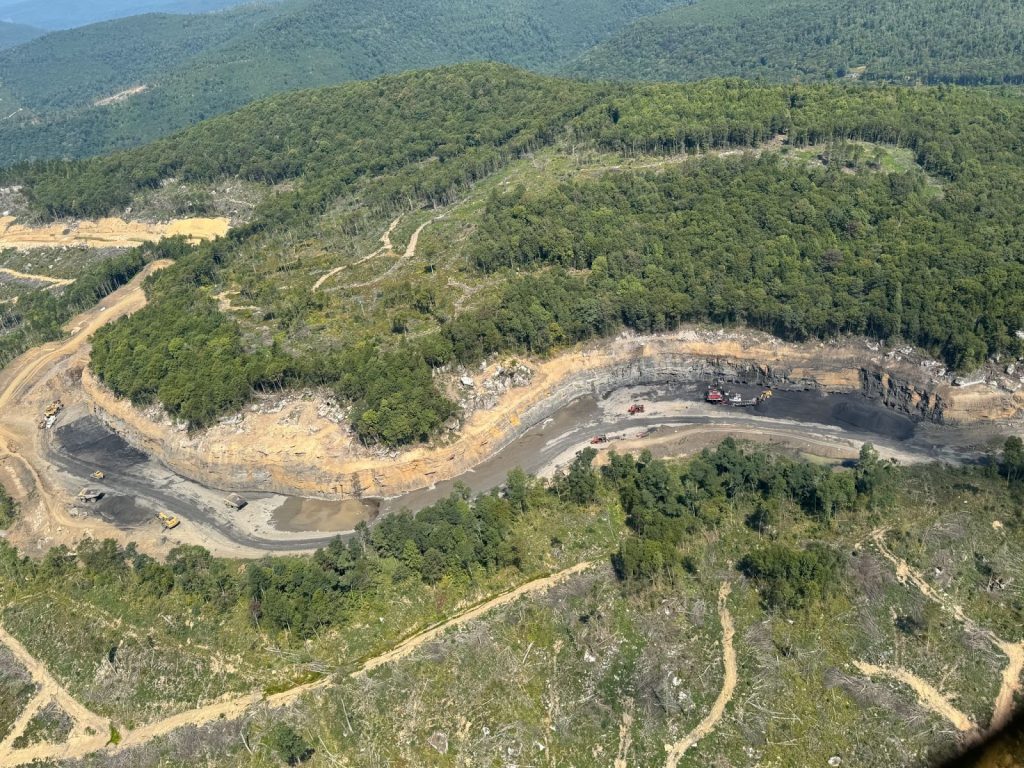Carter Family Keeps on the Sunny Side
Murals of old-time country music pioneers A.P., Sara, and Maybelle Carter line the walls of the Carter Family Fold. Children and grandmothers, teenagers and men in overalls stomp and twirl alongside each other. In the shadow of Clinch Mountain in southwest Virginia, the venue marks the birthplace of country music and has attracted musicians from around the country and audiences from around the world.
Fulfilling a promise to carry on her family’s music, Janette Carter, daughter of Sara and A.P., built the Fold 40 years ago as an arena for musicians to honor and perform classic American music.
But Janette’s death in January of this year left the fate of the Fold in her children’s hands. Janette’s daughter Rita Jett Forrester feels the same responsibility to carry on the family music.
“There’s so much of her here,” said Forrester, remembering her mother sitting on stage for the Saturday night performances. “It’s going to go on because it’s what she wanted and we can’t let her down.”
Eighty years ago A.P. Carter scoured the region gathering old gospel hymns and family songs. In 1927 he and his wife Sara and her cousin Maybelle traveled the long dirt road from Clinch Mountain’s Poor Valley to Bristol, TN and began recording these songs for the first time in history.
In the next fifteen years, the family recorded over 300 songs and appeared on numerous radio shows, laying the groundwork for what would become country music.
Through the old-time harmonizing with Sara’s piercing voice and Maybelle’s intricate guitar picking, the Carters sang ballads of Appalachia that people all over the country could relate to. Forrester said her family’s stories told the soul of Appalachia and that’s what attracted people to the Carter music.
“They were so connected to where they came from,” she said. “To them, home and family came first. They weren’t going to let their careers affect their family.” According to Forrester, when the trio was home in Poor Valley they still woke up at 5 a.m. to make biscuits and gravy.
“They were genuine, they lived those songs,” said Forrester. “You knew it was from the heart.”
Through their stories, the Carter family evokes a deep connection with place, said author and Associate Professor of English and Appalachian Studies at East Tennessee State University Ted Olson. “Appalachian people have a keen sense and interrelationship with place that is learned through time, more so than other parts of the U.S,” he said.
The haunting old-time sound of the songs was unusual and what first attracted Dr. Douglas Pote to the Carters. In 2001 Pote wrote “Keep on the Sunny Side,” a play about the Carters. The play was performed at the Barter Theater in Abingdon, VA for three years and has gone on a national tour reaching over 100,000 people in 23 states. “Their songs are like poetry that draws you in,” he said. “The music is different, more personal and very genuine. They have lyricism and simplicity in their music that’s different than modern music.”
Pote said listening to the Carter family music today is an interesting window into the way life used to be. “Their legacy is secure – can’t ever knock them off as a cornerstone of country music,” he said. “Anyone in country, folk, and rock music has in some degree been influenced by the Carters, even if they don’t know it.”
The media’s recent discovery of Appalachia through such films as “Walk the Line” (2005) and “O Brother, Where Art Thou” (2000) has renewed an interest in Appalachian music. The “O Brother, Where Art Thou” soundtrack sold 10 million copies without ever being played on the radio and the Carters music is now more widely available than ever. “People are embracing their culture and music as having value,” said Pote. “In the past Appalachian people would distance themselves from their culture but they are starting to realize that it has a lot of influence.”
They walked a tightrope between two worlds: the traditional hard-working life of Appalachia and the rising industrialization of the rest of the country. Olson says the Carters continue to serve as diplomats of Appalachian music by exposing the world to the stories and a way of life that had previously been hidden in the hollows of the Appalachian Mountains. “The Carters are seen and celebrated as cultural ambassadors,” he said. “They showed dignity by balancing their roles. They stayed true to their values as residents of Appalachia while negotiating the wider world. They provided a model for how to keep the past alive through their music and values while making the past meaningful to people in modern and urban environments.”
Although America was entering into the modern post-Depression era and WW II during the Carters’ reign, they did not want people to forget and marginalize the past. “They tapped into universal truths of human life,” said Olson. “Their message was that tradition, family, place, and music matters. They were proud of who they were and where they came from.”
Forrester cooks pots of BBQ, soup beans, and corn each week to sell on Saturday nights at the Fold. She said the Fold acts as not only a portal into Appalachian music but a celebration of Appalachian culture for all generations. “It does my heart good to see young people here at the Fold,” she said.
Growing up, she remembers seeing photos of dirty starving Appalachian children. Even today, she said, some teens are ashamed of where they come from. “People had the perception that everyone in Appalachia was like that,” she said. “Here you could exist but not succeed — and that’s starting to change.”
People of the Appalachians need to try hard to preserve their heritage and not loose their identity, she said. “People tend to stay here because they’re so connected to their home and people,” she said. “If I’m in a flat place I feel unprotected without the mountains and the trees. Anyone who’s from here knows what it feels like.”
Olson is afraid the changing landscape of Appalachia will destroy the culture and tradition. “There are pressures on the Appalachia environment and culture like mountain-top removal, urban sprawl, and tourism,” he said. “It is now up the people of Appalachia to identify the values they want to preserve and what parts of their life they are willing to change with the rest of the country. Change is inevitable and it will be a challenge for Appalachians to work together for the long-term health and culture of Appalachia.”
Olson said that the Carter family serves as model for future generations of Appalachian folk by embracing the outside world while staying true to their culture. “In the future, folks will have to make decisions about how to preserve the best of the past and embrace the best of the future.” The Carters did just that. “They are excellent role models for people today.”
The Carter Fold is located in Hiltons, southwest VA, near Highway 58 off of Interstate I-81. The Fold is 25 miles from Bristol, TN and 40 miles from the Tri-Cities Airport in Blountville, TN.
Contact The Carter Family Fold through the website: www.carterfamilyfold.org, telephone: (276) 386-6054, email: info@carterfamilyfold.org, and mailing address: Center, Inc. A.P. Carter Highway, P.O. Box 111, Hiltons, Virginia 24258.
WELL KNOWN CARTER FAMILY SONGS
Bury Me Beneath the Weeping Willow
Coal Miners Blues
Engine 143
Gold Watch and Chain
Im Sitting on Top of the World
Keep on the Sunny Side
Little Darling, Pal of Mine
My Clinch Mountain Home
My Home’s Across the Blue Ridge Mountains
Poor Orphan Child
Ring of Fire
Wabash Cannonball
Wildwood flower
Will the Circle Be Unbroken
Worried Man Blues
SHORT LIST OF PERFORMERS
WHO HAVE PLAYED
CARTER FAMILY SONGS
Woody Guthrie, Earl Scruggs
Joan Baez, Doc Watson
Bob Dylan, Nitty Gritty Dirt Band
George Jones, Willie Nelson
Ricky Skaggs, Emmylou Harris
Peasall Sisters, John Prine, Sheryl Crow
RECOMMENDED:
Mark Zwonitzer and Charles Hirshberg, Will You Miss Me When I’m Gone? The Carter Family and Their Legacy in American Music. (Simon & Schuster, 2002)
“The Unbroken Circle: The Musical Heritage of the Carter Family “ (Dualtone, 2004)
WEBLINKS: www.appalachianvoice.org
The Appalachians DVD
web site: http://www.appalachiamyhome.com/
Related Articles
Latest News

Leave a comment
Your email address will not be published. Required fields are marked *





Leave a Comment